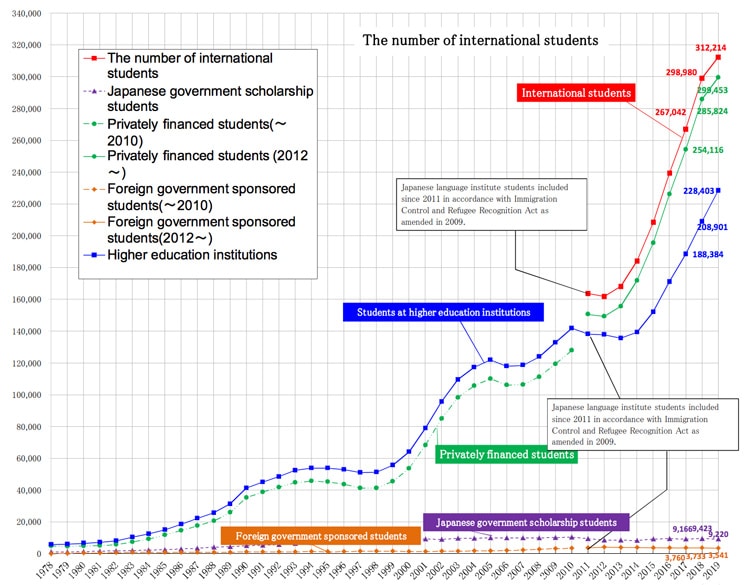Japan eases restrictions for international travellers, including students
- Update (January 2021-June 2021): Japan’s borders are closed to international students at this time.
- Japan is opening its borders again to international students with visas for longer-term studies
- The number of daily arrivals is limited for the time being with greater emphasis given to key sending markets in Asia
Update: Japan closed its borders again to international students in early January, 2021.
Making a direct link between economic recovery and international travel, the Japanese government has moved to ease border restrictions in October with a further opening of borders anticipated in the weeks ahead.
Speaking to Japanese media in late-September, Prime Minister Yoshihide Suga said that it in order to “revitalise the economy, it is indispensable to resume international travel.”
A 25 September statement from the Ministry of Foreign Affairs provides more detail: "The holders of statuses of residence of 'Student', 'Dependent' and others, in addition to cross-border business travellers of all countries and regions will be incrementally permitted to enter Japan from 1 October 2020, under the condition that the person is hosted by a company/entity that can assure observation of quarantine measures. However, the number of people to be permitted to enter Japan as provided in this paragraph will be restricted."
The ministry further explains that the government has engaged in discussions with 16 Asia-Pacific countries "where the spread of infections is contained" and that they will be accordingly prioritised for protocols supporting international travel to and from Japan. Those countries are Vietnam, Thailand, Australia, New Zealand, Cambodia, Singapore, South Korea, China, Hong Kong, Macau, Brunei, Malaysia, Myanmar, Mongolia, Laos, and Taiwan.
A related report in The Asahi Shimbun newspaper indicates that Japan currently intends to accept up to 1,600 international arrivals per day from those 16 countries and a further 1,000 daily arrivals from other regions.
For the moment, that ability to enter the country will also be confined to business travellers and to those with visas for longer-term stays in Japan, including student visas, and with all arrivals required to undertake a 14-day quarantine period.
"Japan will allow the entry of foreign nationals with permits to stay for three months or longer for purposes including engaging in medical, cultural and sports-related activities," reports the Kyodo News. "Business trips for less than three months will also be allowed." Aside from business travellers, other short-term visits, including for tourism, will not be permitted at this time.
The Ministry of Foreign Affairs has provided detailed guidance for arriving travellers, particularly those from the 16 Asia-Pacific nations noted above.
The connection to student mobility
Among those countries are four of the five largest sending markets for Japanese higher education institutions and schools. According to the Japan Student Services Organization (JASSO), the vast majority of the 312,214 international students in Japan in 2019 came from elsewhere in Asia.
In fact, nearly two-thirds came from only two countries: China (40% of the total, sending 124,436 students, up 8% over 2018) and Vietnam (24%, sending 73,389 students). Rounding out the top five sending markets for Japan last year were Nepal (8.4% of the total, 26,308 students), South Korea (5.8%, 18,338 students), and Taiwan (3%, 9,584 students).

Exemptions for business travel
Japanese media reports suggest that additional measures will be introduced through October and November that will further ease travel restrictions, and especially for business travellers.
The Japan Times reports, for example, that the government will introduce conditional exemptions for business travellers (and returning Japanese citizens) that will allow them to forego the current 14-day quarantine requirement. "People who are confirmed negative in [COVID testing on arrival at a Japanese airport] will not need to self-quarantine on condition that they submit activity plans and do not use public transportation for two weeks."
For additional background, please see:


















